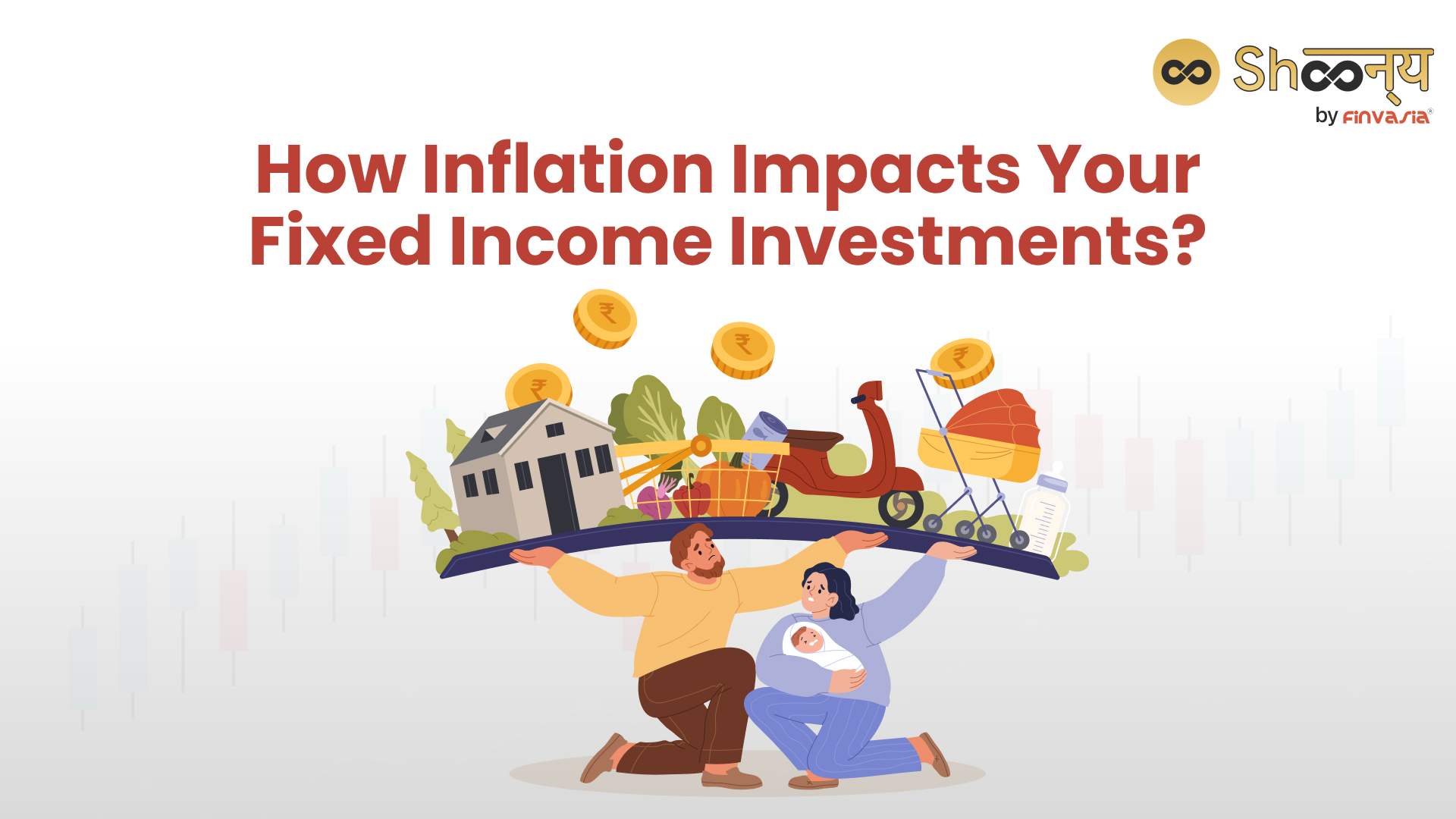How Inflation Impacts Fixed-Income Investments and Strategies for Mitigation

Fixed-income investment is a reliable choice for those seeking consistent returns with low risk.
But, like all financial matters, inflation plays a significant role in shaping the economy and influencing investment decisions. It’s crucial to grasp how inflation affects these investments.
In 2022, inflation in India, measured by the Consumer Price Index (CPI), exceeded the target set by the Reserve Bank of India (RBI), presenting challenges for those invested in fixed income.
Key Highlights
- Inflation challenges fixed-income yields, posing a significant concern for investors.
- Diversification is a key strategy to shield against the risks associated with inflation.
- Explore bonds that adjust to inflation and benchmark rates, such as inflation-linked bonds and floating-rate bonds.
- The RBI’s decisions, especially maintaining a stable Repo Rate, play a crucial role in influencing fixed deposit rates.
- Various strategies, including investing in real assets and high-yield bonds, can effectively mitigate inflation-related risks.
How Inflation Affects Investment
Inflation, the general increase in the prices of goods and services over time, poses a challenge to fixed-income investments.
Inflation affects fixed-income investment in two main ways:
- It reduces the real interest rate, meaning the actual earnings considering inflation.
- It diminishes the real value of the principal amount, affecting the purchasing power upon maturity.
Strategies to Protect Your Portfolio from Inflation in India
To shield your fixed-income portfolio from the adverse effects of inflation in India, consider implementing these strategies:
Portfolio Diversification
Diversifying your investment portfolio involves including bonds with different maturities and yields. This strategy not only spreads your risk but also helps in managing the impact of inflation. By having a mix of bonds with various terms and returns, you can better handle the changing economic conditions and safeguard your investments against potential losses.
Floating Rate Bonds
Opting for floating rate bonds can be a smart move to shield your investments from the impact of rising interest rates and inflation. These bonds adjust their interest rates periodically, providing a flexible and adaptive approach to the changing economic landscape. This strategy ensures that your returns remain in sync with market conditions, offering a potential hedge against the erosive effects of inflation.
Investing in Real Assets
Real assets, such as real estate or commodities, serve as a valuable hedge against inflation. Unlike financial assets, the value of real assets tends to be appreciated during inflationary periods. By incorporating real assets into your investment strategy, you not only diversify your portfolio but also create a buffer that can counteract the diminishing purchasing power caused by inflation, potentially enhancing your overall returns.
Inflation-Linked Bonds
Consider investing in bonds like RBI’s Inflation-Indexed Bonds (IIBs) to combat the impact of inflation. These bonds adjust both interest payments and principal according to the Consumer Price Index (CPI). By aligning with inflation rates, IIBs aim to preserve the real value of your investment, providing a reliable avenue for those looking to safeguard their portfolios in the face of rising prices.
Short-Term Bonds
To decrease sensitivity to inflation, consider investing in short-term bonds like Treasury Bills (T-bills) or Commercial Papers (CPs). These bonds have shorter maturity periods, which means their interest rates are less affected by long-term inflation trends. By frequently resetting according to market conditions, short-term bonds offer a more adaptive strategy to navigate the uncertainties associated with inflation.
High-Yield Bonds
Exploring high-yield bonds, such as corporate bonds or non-convertible debentures (NCDs), can be a rewarding strategy. These bonds come with higher interest rates, compensating for increased default risk and inflation expectations. While they carry higher risk, the potential for enhanced returns makes them an attractive option for investors willing to balance risk and reward in the pursuit of stable and consistent income despite inflationary pressures.
The Role of RBI’s Monetary Policy in Fixed Income Investments
The RBI’s Monetary Policy Committee’s decisions, such as maintaining a steady Repo Rate, influence fixed-income investments. The Repo Rate, the rate at which central banks lend to commercial banks, affects fixed deposit interest rates. The Repo Rate, governing central banks’ lending to commercial banks, plays a pivotal role. When it increases, fixed deposit (FD) interest rates rise, and vice versa. This intricacy becomes even more critical when central banks raise rates to combat inflation, potentially causing financial losses for investors selling bonds prematurely.
RBI’s Policy Stand: Status Quo on the Repo Rate
The recent December policy meeting of the RBI’s Monetary Policy Committee (MPC) maintained the status quo, keeping the Repo Rate steady at 6.50 percent. This decision, aligning with market forecasts, marks the fifth consecutive meeting with an unchanged Repo Rate.
Safeguarding Your Portfolio in the Face of Market Volatility
The current inflation scenario in India presents challenges for investors seeking stability and consistent returns from fixed-income investments.
Fixed-income investment is a popular choice for investors who seek a regular and stable income with low risk. However, fixed-income investment is also affected by inflation, which can reduce the real value and purchasing power of your income and principal over time. Therefore, it is important to understand how inflation affects fixed-income investment and how you can protect your portfolio from inflation in India. By using the strategies mentioned above, you can hedge against inflation and enhance your returns from fixed-income investments.
______________________________________________________________________________________
Disclaimer: Investments in the securities market are subject to market risks; read all the related documents carefully before investing.








